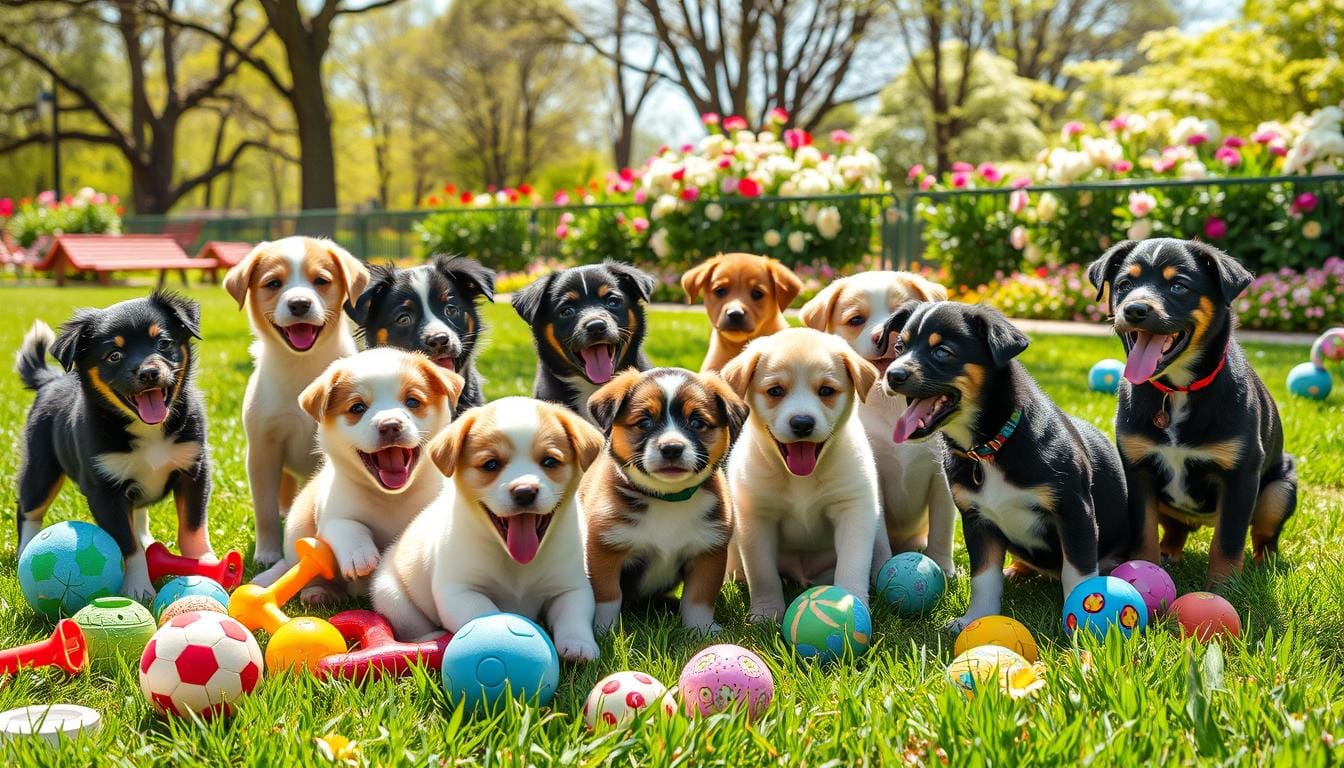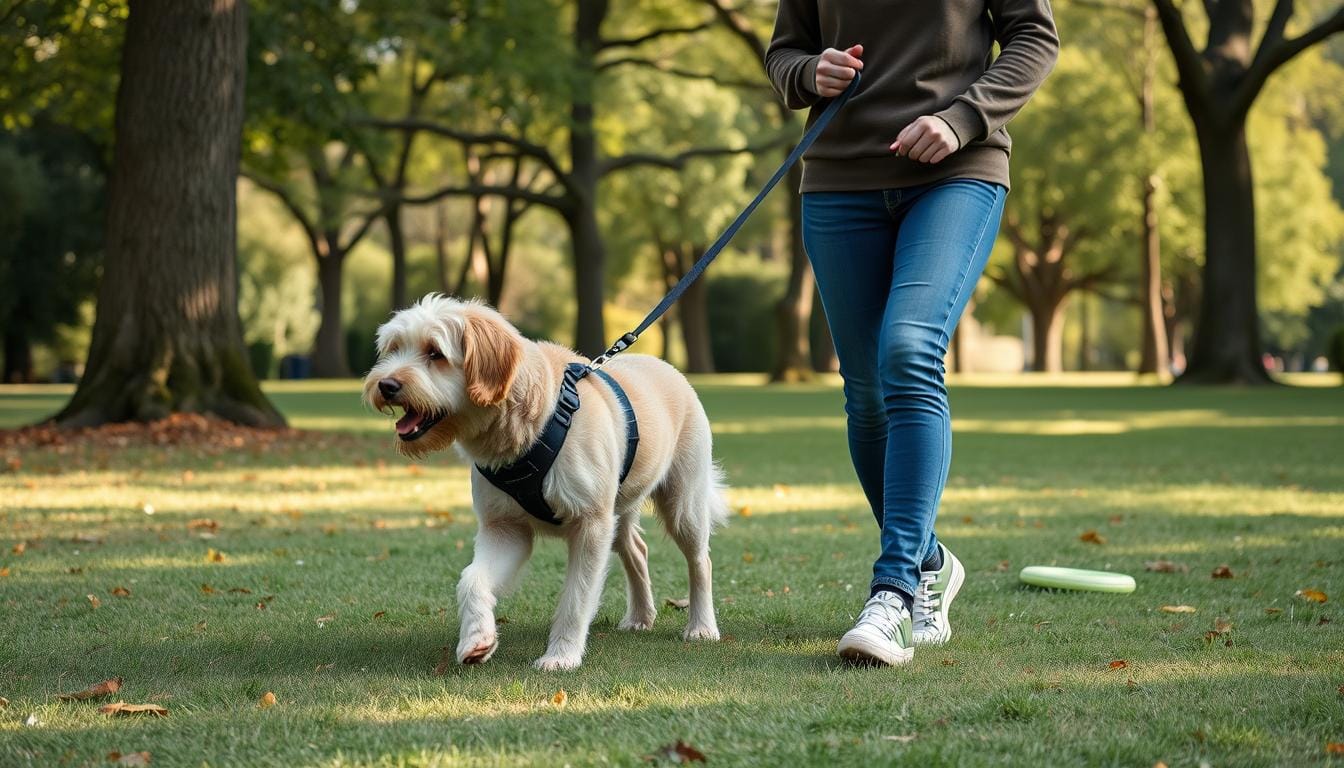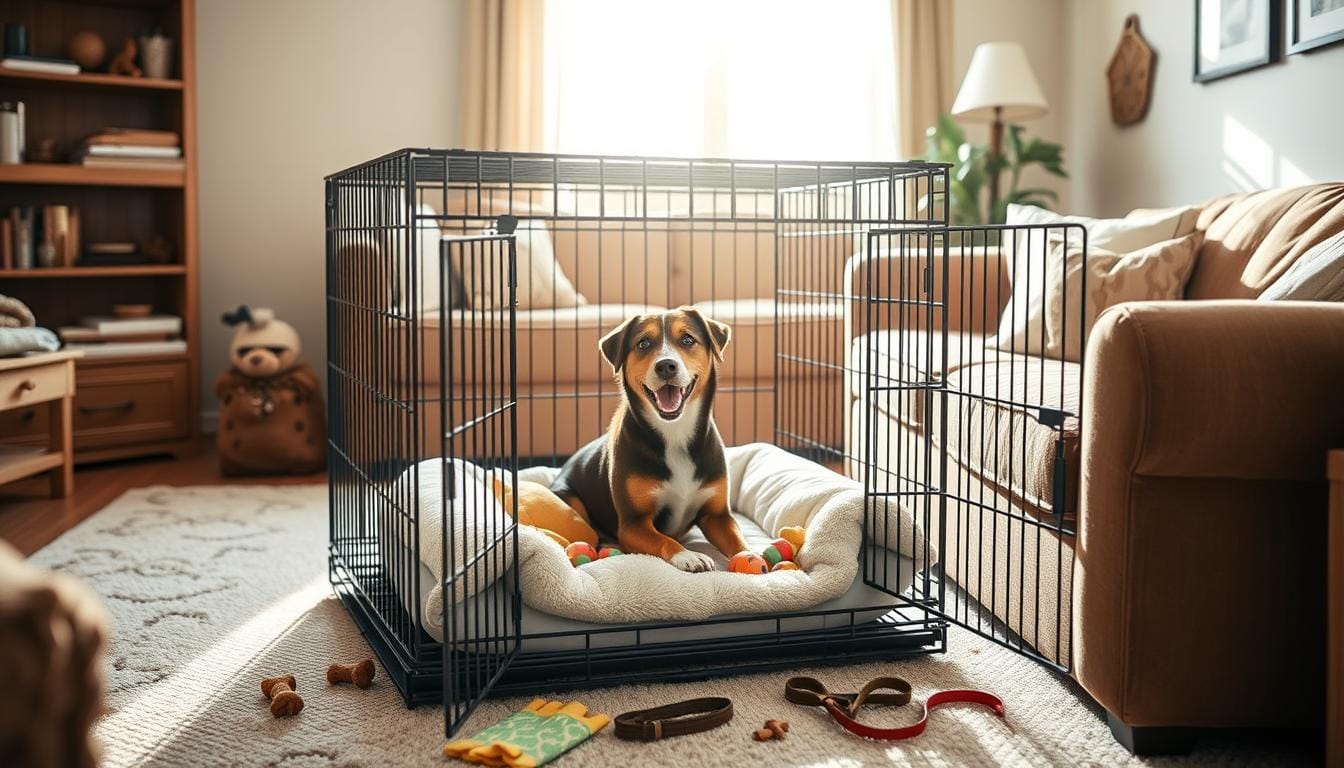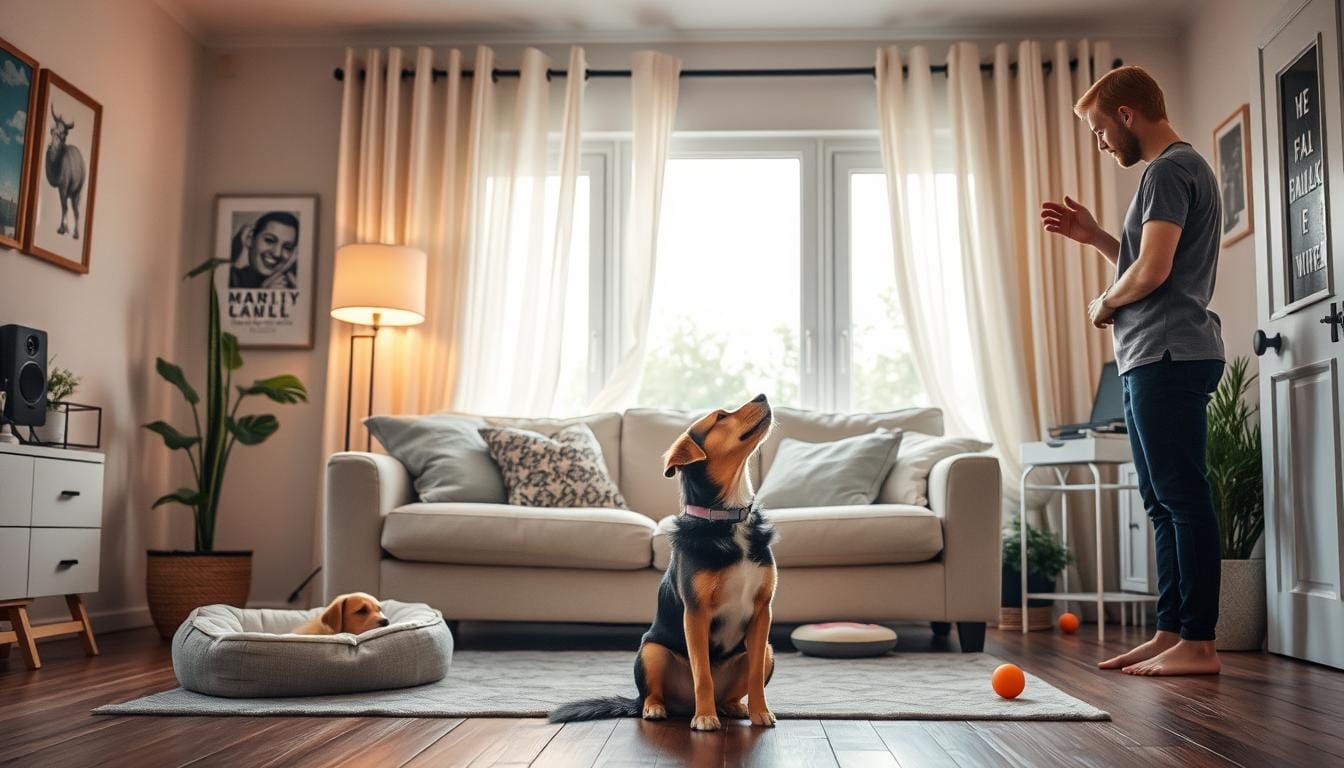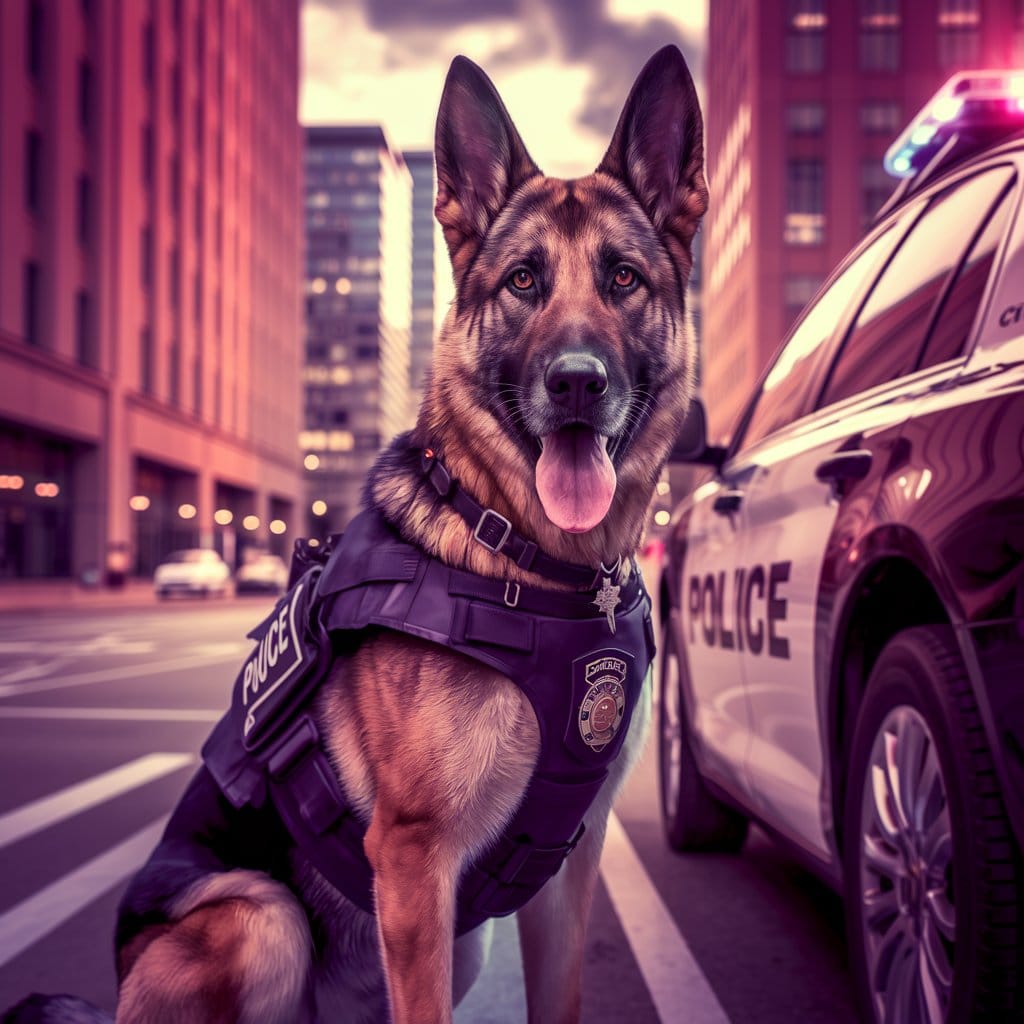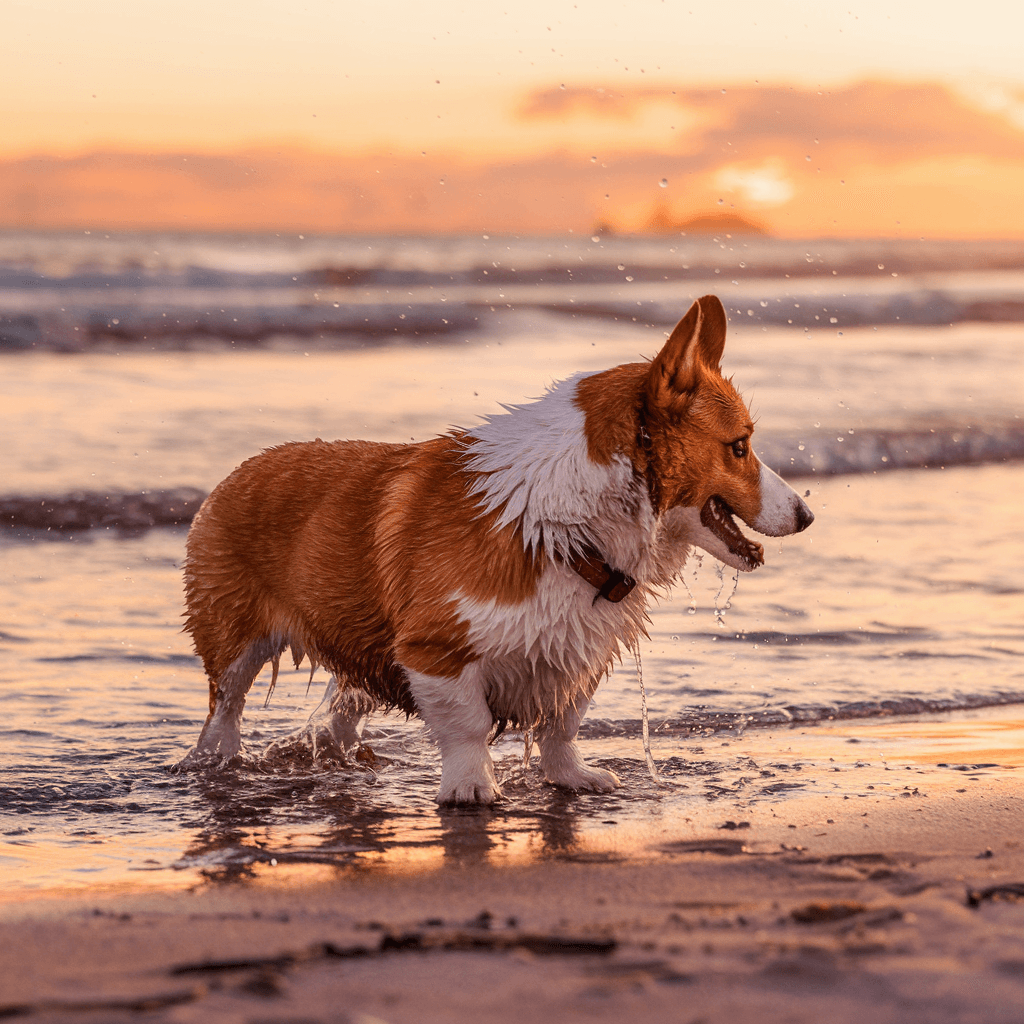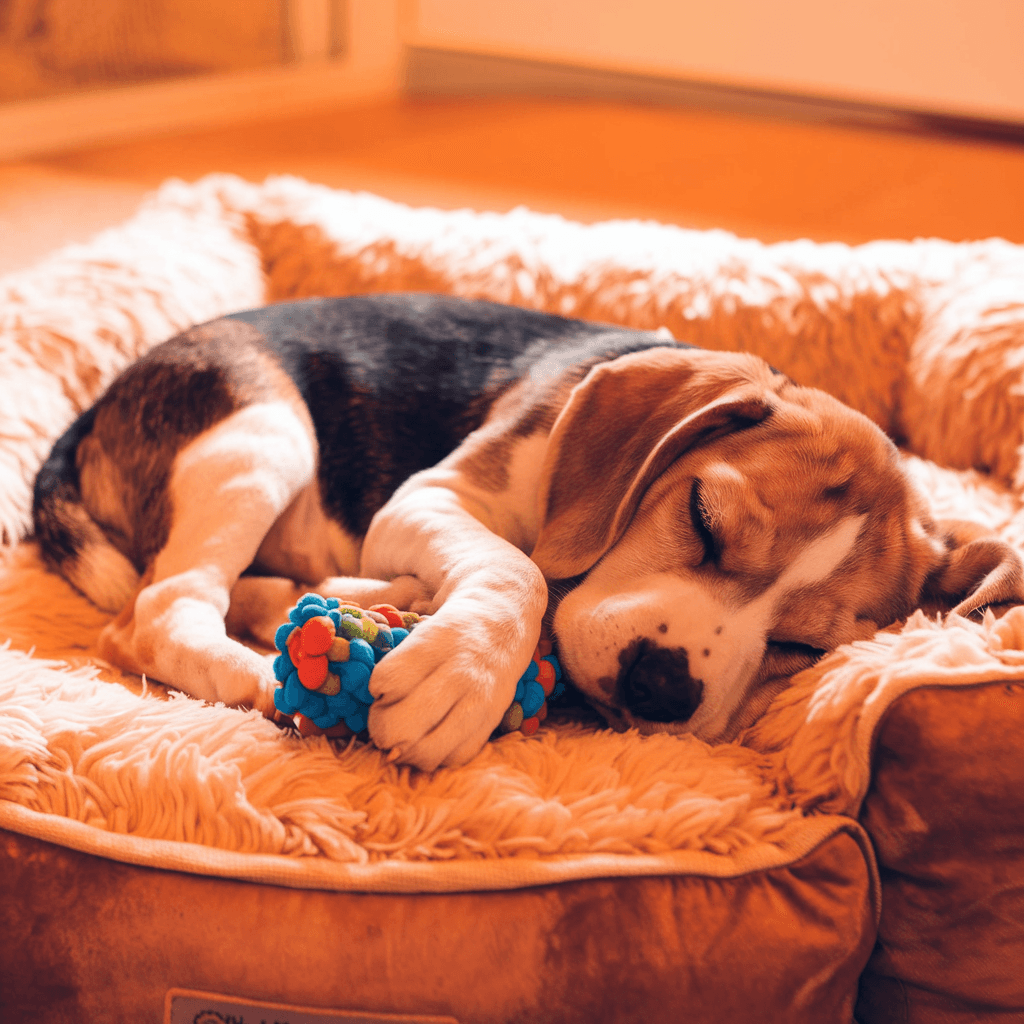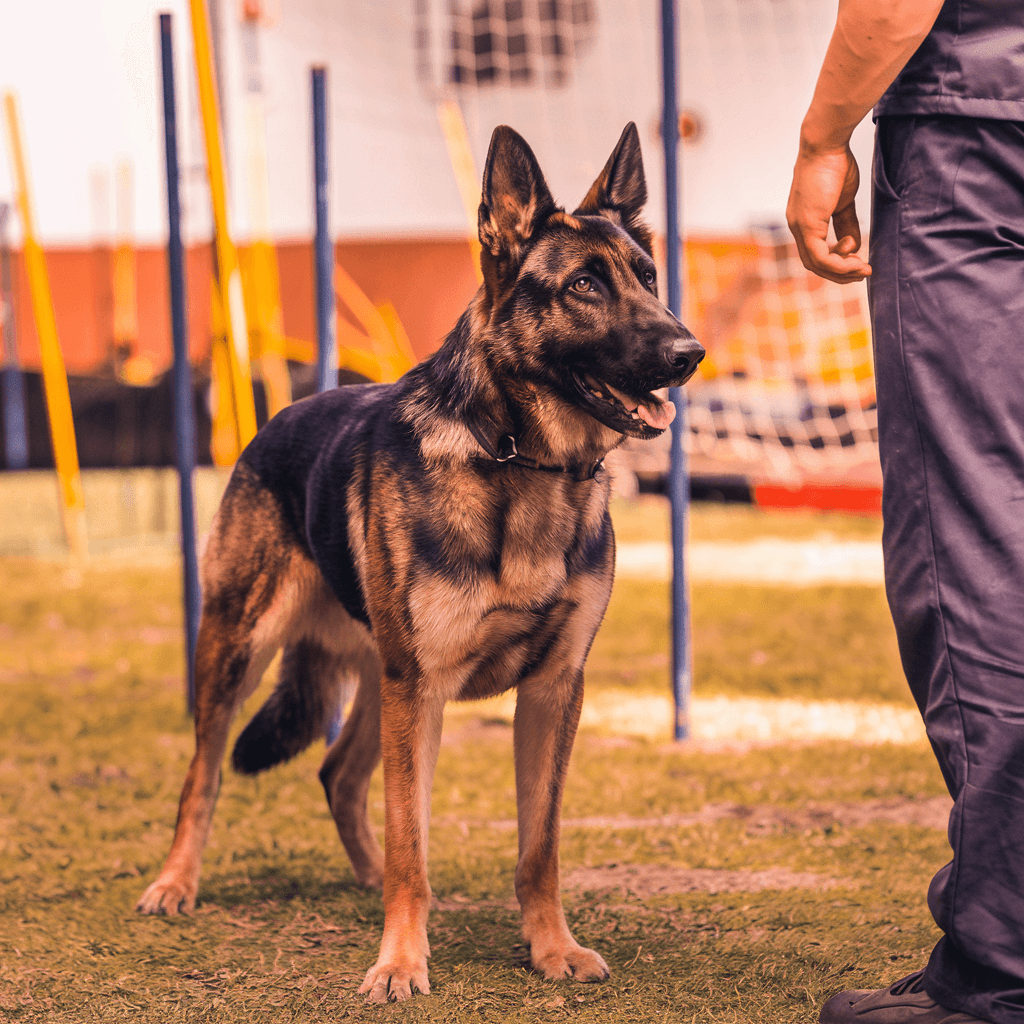Bringing a new puppy home is thrilling, but starting socialization early is key. It helps raise confident dogs and prevents bad behavior. Let’s look at why early socialization matters and how to start training your dog.
The American Veterinary Society of Animal Behavior points out a shocking fact. Behavioral problems, not diseases, kill many dogs under three. This shows how important socialization is for a dog’s well-being.
The best time for puppy socialization is between 3-12 weeks, but it can go up to 16 weeks for some breeds. Puppies are most open to new things during this period. Introducing them to different people, places, and situations helps shape their personality.
These early experiences are incredibly important. Socialized puppies are less likely to be fearful, aggressive, or avoidant. They get along well with kids, adults, and other animals, making them great family pets.
Key Takeaways
- Early socialization (3-12 weeks) is crucial for puppies
- Well-socialized dogs have fewer behavioral issues
- Exposure to diverse experiences shapes future temperament
- Socialization reduces fear and aggression in adult dogs
- Proper training creates confident, well-adjusted companions
- Early socialization outweighs disease risks in puppy classes
Understanding the Critical Socialization Period
The critical socialization period for puppies is very important. It shapes their future behavior and personality. This time is from 3 to 16 weeks, when puppies are most open to new things and learning.
What Happens During 3-16 Weeks
During this time, puppies’ brains grow fast and they are ready to learn. We suggest showing puppies new things at least twice a week. This helps them see the world in a positive way.
Brain Development and Learning
Science shows that good experiences during this time make new paths in the brain. These paths help dogs stay calm in similar situations later. Early care and play help puppies grow up to be confident and friendly.
Impact on Future Behavior
Good socialization during this time greatly affects a puppy’s future behavior. It shapes how they act in different situations as adult dogs. To get the most out of this time, try these socialization methods:
- Puppy classes (8-16 weeks)
- Home exposure (3-16 weeks)
- Controlled playdates (8-16 weeks)
- Environmental tours (12-16 weeks)
By understanding and using the critical socialization period, we can help puppies grow into well-adjusted, confident dogs. This early effort can avoid the need for a lot of behavior changes later.
The Science Behind Puppy Socialization, Confident Dogs, Dog Training Tips
Early socialization is key for confident dogs. The best time for puppy socialization is between 8 to 16 weeks. This is when they are most open to new things, making it the best time for training.
Positive reinforcement training is crucial for well-adjusted dogs. By introducing puppies to different people and places, we help them learn to handle the world with confidence.
Puppies not socialized during this time may face behavioral issues like fear or aggression. Starting training around 16-18 weeks can help avoid these problems.
| Age | Socialization Focus | Training Emphasis |
|---|---|---|
| 8-16 weeks | Exposure to various stimuli | Basic commands, positive associations |
| 16-18 weeks | Continued exposure, puppy classes | Structured training sessions |
| 6-12 months | Advanced socialization techniques | Reinforcement of learned behaviors |
Gradual exposure and making sure puppies feel safe are key. Using these methods with positive reinforcement helps puppies see new things as positive. This reduces fear-based behaviors later on.
Essential Components of Early Socialization
Early socialization is key for puppies, helping them become well-adjusted adult dogs. We’ll look at the main parts of puppy socialization. These include environmental exposure, social interactions, and sensory experiences.
Environmental Exposure
It’s important to introduce puppies to different environments during their socialization period, from 3 to 16 weeks. This helps them feel less scared and anxious about new things. Safe places for this include dog-friendly cafes, outdoor malls, and hardware stores.
These places let puppies explore various sights, smells, and sounds in a good way.

Social Interactions
Social interactions are crucial for puppies to grow into well-behaved adult dogs. Playdates with vaccinated puppies are great for learning social skills. Puppy socialization classes also help, teaching them about boundaries and how to play nicely.
These classes prevent problems like aggression or too much barking later on.
Sound and Texture Experiences
Introducing puppies to different sounds and textures is also vital. This means exposing them to various floor surfaces, objects, and everyday noises. Handling exercises also make them comfortable with being touched in different ways.
This is important for future vet visits and grooming.
| Socialization Component | Examples | Benefits |
|---|---|---|
| Environmental Exposure | Outdoor malls, hardware stores | Reduces fear of new places |
| Social Interactions | Puppy playdates, training classes | Prevents aggression, improves social skills |
| Sound and Texture Experiences | Various floor surfaces, handling exercises | Builds confidence, eases future care |
By adding these key elements to a puppy’s early life, we help them become confident and well-socialized adult dogs. Remember, being consistent and regular with these experiences is crucial for lasting benefits.
Creating Safe Socialization Experiences
Creating fear-free environments for puppy socialization is key in the first 12-14 weeks. This time shapes their future behavior and confidence. We suggest starting socialization early to avoid behavioral problems, which are a major cause of death in young pups.
Positive reinforcement training is essential for building a puppy’s confidence. Short walks, weekly dog meet-ups, and visits to pet-friendly places offer diverse experiences. These activities help puppies get used to new sights, sounds, and textures.
Professional services like puppy schools and board-and-train programs offer structured settings for socialization. These controlled environments let puppies safely interact with others while learning social skills.
“Consistency in exposure to new experiences is crucial for building a puppy’s confidence.”
We’ve listed some safe socialization activities:
- Arrange playdates with vaccinated puppies
- Visit parks and outdoor events
- Attend puppy classes with experienced trainers
- Explore different surfaces and textures at home
- Introduce various sounds using recordings
Always watch your puppy’s body language during these activities. If they seem stressed, take a break and try again later. With patience and positive reinforcement, your puppy will grow into a well-adjusted adult dog.
| Activity | Benefits | Frequency |
|---|---|---|
| Neighborhood walks | New sights and sounds | Daily |
| Puppy playdates | Social skills development | Weekly |
| Puppy classes | Structured learning | Weekly |
| Home texture exploration | Sensory experiences | Daily |
Vaccination Considerations and Safety Protocols
It’s important to balance puppy vaccination with safe socialization. Puppies need to be socialized until they are about 16 weeks old. We’ll look at how to time socialization, manage health risks, and create safe spaces for your puppy’s growth.
Timing Your Socialization Efforts
Puppies have a key development window from 6 weeks to 4 months. The most important time is between 8 to 12 weeks. Start socializing your puppy after their first vaccinations, usually around 7-8 weeks.
Waiting too long to socialize can cause long-term behavioral problems. It’s best to start early.
Balancing Health Risks
Puppy vaccination is key, but avoiding socialization can cause more harm. Maternal antibodies protect puppies at first, but they wear off. Vets give vaccines in stages to keep puppies safe.
By the time puppies get their final vaccine at 4-5 months, they’re usually immune. This is thanks to earlier vaccinations.
Safe Environment Guidelines
To keep socialization safe, avoid places like dog parks and pet stores until your puppy is fully vaccinated. Instead, introduce them to healthy, vaccinated dogs in a controlled setting. Good training facilities are clean and safe, offering vital socialization.
“Socializing puppies at a young age helps in creating confident and well-balanced adult dogs.”
By following these tips, you can ensure your puppy has safe socialization. This helps prevent behavioral issues that could lead to rehoming or shelters later.
Building Positive Associations Through Training
Positive reinforcement training is key for puppy socialization. It builds a strong foundation for confident dogs. Reward-based methods make new experiences exciting, not scary.

The first three months are critical for puppy socialization. Puppies are very open to new things during this time. We should introduce them to different places, people, and things in a positive way.
Using treats, praise, and play motivates puppies. Short training sessions keep them interested and eager. Always end on a positive note, so they want more.
“Positive encounters during the first three months contribute to a more self-assured adult dog.”
Puppy socialization classes and playdates are great for learning. They provide a safe space for puppies to meet others. This helps them build confidence and learn good behavior.
Let puppies lead when exploring new things. Forcing them can cause fear or anxiety. Instead, reward them for facing new situations. This makes new things exciting and rewarding.
Introducing Your Puppy to New Environments
Puppy socialization is key to their behavior and confidence. We’ll show you how to introduce your puppy to new places. This ensures they have positive experiences that help them grow.
Indoor Experiences
Begin by letting your puppy explore different rooms in your home. Let them check out the kitchen, living room, and bathroom. Introduce them to household items like vacuum cleaners and washing machines.
Outdoor Adventures
Start with your backyard before going to quiet parks or streets. Gradually introduce them to new sights, sounds, and smells. Keep these first experiences short, 5-10 minutes is enough.
Different Surface Types
Let your puppy walk on different textures. Try grass, concrete, carpet, and smooth floors. This helps them feel confident in various settings and prepares them for more adventures.
| Surface Type | Benefits | Introduction Tips |
|---|---|---|
| Grass | Natural texture, outdoor comfort | Start in a quiet area of your yard |
| Concrete | Urban environment preparation | Begin with short walks on sidewalks |
| Carpet | Indoor comfort, texture variety | Encourage play on different carpeted areas |
| Smooth Floors | Balance and coordination | Use treats to motivate exploration |
Consistency is crucial in puppy socialization. By slowly introducing your puppy to new places, you’re laying a strong foundation for their future.
Socializing with People and Other Animals
Puppy socialization is key to raising a well-adjusted dog. We suggest introducing your puppy to about 400 different people in the first month. This group should include people of all ages, races, and sizes for a rich experience.
Social interactions are vital for puppy socialization. Veterinary visits are great for meeting new people. Weekend trips to parks or walks around school bus schedules help your puppy meet kids.
For other animals, focus on one-on-one meetings with friendly, vaccinated dogs. Rotate these interactions to let your puppy meet different breeds, ages, and play styles. This helps them learn to resolve conflicts and improve their social skills.
“Puppy socialization is like kindergarten for dogs. It’s where they learn the basics of canine social etiquette.”
Quality experiences are more important than just quantity in puppy socialization. Watch your puppy’s stress levels to avoid negative experiences. With patience and consistency, your puppy will grow into a confident, well-socialized adult dog.
| Socialization Target | Recommended Number | Timeframe |
|---|---|---|
| People | 400 | First 4 weeks at home |
| Saying ‘hi’ | 500 times | During socialization period |
| Dog interactions | Varied breeds and ages | Ongoing |
Common Socialization Mistakes to Avoid
Puppy socialization is key for raising happy dogs. But, it’s easy to make mistakes. We’ll look at common errors and offer tips to steer clear of them.
Overwhelming Experiences
One big mistake is overwhelming puppies with too many new things too fast. This can make them stressed and fearful. Try to introduce your puppy to about 400 people in the first 4 weeks, but do it slowly.
Begin with calm, controlled interactions. Then, gradually add more people of different ages, races, and sizes.
Poor Timing Issues
Timing is everything in puppy socialization. Waiting too long to start can harm their development. Puppies should stay with their mother and siblings until at least 7-8 weeks.
Once home, start socializing right away. But wait for all vaccinations before letting them meet other dogs.
Negative Associations
Creating negative associations during socialization can cause lasting problems. To avoid this, focus on positive experiences. Desensitize your puppy to sounds like vacuum cleaners and blow dryers.
Introduce different touches on their ears, snout, teeth, paws, and tail. Always end socialization on a positive note to prevent fear or aggression later.
- Gradually expose your puppy to new environments during walks
- Monitor your puppy’s body language for signs of stress
- Use treats and praise to create positive associations
- Keep socialization sessions short and enjoyable
By avoiding these common mistakes and following these tips, you’ll help your puppy grow into a confident, well-adjusted adult dog.
Professional Training and Puppy Classes
Getting your puppy into puppy kindergarten classes is a big step. These classes provide a safe space for your puppy to learn and grow. Professional dog training starts early, at just 8 weeks old, to help your puppy become well-behaved.
Puppy classes last about 15 minutes a day, split into 5-minute sessions. This fits a puppy’s short attention span well. By 6 months, most puppies can learn basic commands. But, they keep learning until they’re about 3 years old.
In puppy kindergarten classes, your puppy will learn important skills:
- Basic obedience (sit, stay, come)
- Proper socialization with other dogs
- Bite inhibition
- Crate training
Professional dog training uses positive methods, like rewards, which work better than punishment. These methods help build a strong bond with your puppy and encourage good behavior.
“Socialization is a lifelong process that requires close supervision and reading of body language.”
Training needs consistency. Make sessions fun and engaging. Soon, you’ll have a happy, well-adjusted puppy ready for anything!
Monitoring Progress and Addressing Challenges
Keeping an eye on your puppy’s socialization is vital for their happiness. We’ll look at how to understand dog body language, adjust your plans, and handle common problems.
Reading Body Language
It’s important to know what your puppy’s body is saying. Look for signs of stress like a tucked tail or too much panting. These signs tell you when to slow down or stop.
Adjusting Your Approach
If your puppy seems stressed, change your plan. Use positive methods to help them feel safe. Start new things slowly, letting them set the pace. This builds trust and keeps them from getting scared.
Problem-Solving Strategies
Dealing with socialization issues needs a plan. Slowly introduce new things to help them get used to it. If problems persist, talk to a pro who knows about dog behavior.
| Challenge | Strategy |
|---|---|
| Fear of new environments | Gradual exposure with positive reinforcement |
| Anxiety around other dogs | Supervised socialization in controlled settings |
| Hesitancy with strangers | Introduce familiar people first, then expand circle |
Remember, socialization is a journey. Pay attention to your puppy’s feelings and adjust your plans. This way, they’ll grow into a confident, friendly friend.
Conclusion
Puppy socialization is key to raising confident dogs. We’ve seen that the best time for this is between 3 to 14 weeks. This is when puppies are most open to new things, setting them up for a good life.
Proper socialization means introducing puppies to many people, animals, and places. This early exposure helps avoid fear, anxiety, and aggression later. Remember, socialization is ongoing, not just for puppies. It keeps dogs positive and adaptable throughout their lives.
Using good dog training tips, like slow exposure and puppy classes, makes a big difference. These methods help puppies become well-adjusted adults. They learn to get along with people and other animals. By focusing on socialization, we’re not just raising puppies. We’re creating future friends who will do well in our world.

